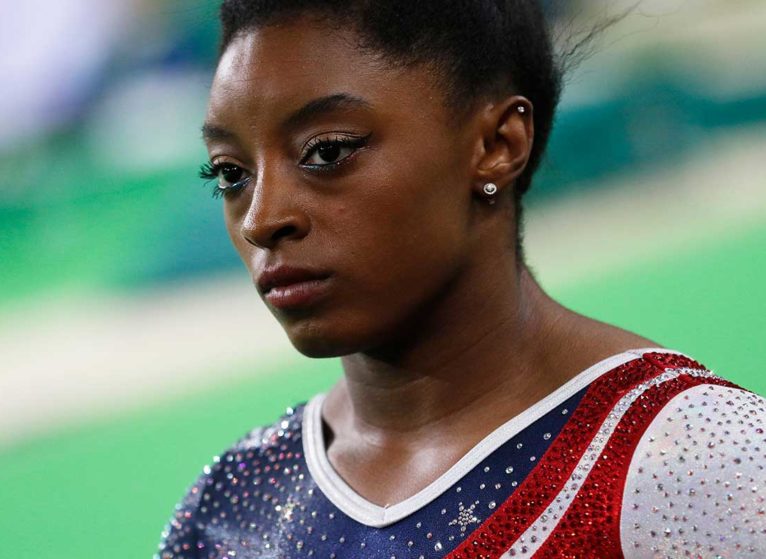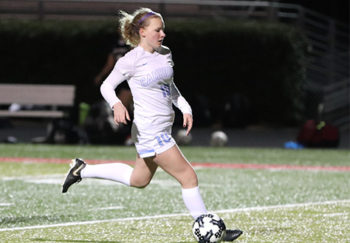For weeks leading up to the Tokyo Olympics, U.S. gymnast Simone Biles was the smiling face of awe-inspiring athletic feats. But then she decided it was more important to step aside and take care of her mental health.
The 24-year-old gymnast posted on social media that she felt the “weight of the world on my shoulders at times.” She joins other elite athletes — legendary swimmer Michael Phelps and tennis star Naomi Osaka — in sharing an important message: Even those who seem to be in perfect health can struggle on the inside.
For Biles, that’s understandable, given the world’s attention on her. But athletes at all levels — even your sports-loving child or teen — can experience pressure to perform and succeed. This can have a negative effect on their mental health.
Harmful pressure can often come from themselves. But it also comes from:
- Parents
- Coaches
- Teammates
- Fans
Why Sports Are Great for Youth
“Parents get their kids involved in sports because there are so many benefits — building confidence and self-esteem, learning lessons of discipline, and social connectedness,” says Haley Stephens, PhD, a UVA Children’s clinical psychologist. “They can also get joyful exercise. It’s such a healthy activity, mentally and physically.”
“The problem comes in when there is too much pressure. Where pressure is synonymous with expectations.”
Youth athletes are likely to experience mental health concerns at the same rate to the general population. But these days, more kids and teens are struggling psychologically, notes Joseph Tan, PhD. Tan is a clinical psychologist with the UVA Health Family Stress Clinic.
Ways to Protect Your Athlete’s Mental Health
Tan’s advice for parents: “Focus on the effort given rather than the outcome of the activity.” Talking too much about a win or a loss:
- Increases pressure on the athlete to perform
- Centers the discussion on something the athlete doesn’t control as much as their own effort
“Harmful messaging can be very subtle and well-intended,” Stephens says. “Parents have this instinct to jump into problem solving.”
She gives an example: After a baseball game, your child says, “I pitched terribly and gave up two home runs.” You might be tempted to respond, “That’s OK. We’ll work on your pitching this weekend.”
But “that sends the message that it wasn’t a good game, and the important thing is to have good games, and you can do better,” Stephens says.
“Instead, try this response when your child is upset: ‘Man, that sounds disappointing. Tell me more about how you felt? How’d your teammates react?’ This takes the message away from being all about the performance and putting it back on their emotions.”
The parent’s role, Stephens adds, is to “celebrate the happiness with them and listen empathetically to the more difficult emotions.”
Does your child prefer playing a musical instrument or excelling in academics? The same approach applies, Stephens says.
Mental Health Dangers of Over-Competition
If your child competes at a high level, they might naturally be more of a hardworking perfectionist. “When those traits coincide with talent and ability — and thus higher expectations — I imagine that can create a perfect storm for mental health concerns,” Stephens says.
The research on sports-related factors that negatively impact youth mental health is still new, Tan notes. But such factors, he adds, might include:
- Sport specialization — focusing on one sport
- Going professional at younger ages
- Parents and coaches reinforcing perfectionistic attitudes
- Culture of “pushing through it” when it comes to coping with mental health concerns
- Less time for support networks, like family and friends, because of sports-related travel or an intense training schedule
“Pressure for elite youth athletes might come from intrinsic tendencies towards higher perfectionism,” Tan says. “But it is also likely shaped by the attitudes and behaviors of adults who are around them.”
Sports Can Be Good or Bad for Mental Health
If your child is no longer enjoying a sport, it’s important to sort out why. Is it an overwhelming worry of letting others down? Or perhaps a symptom of depression?
“Sports-related mental health concerns happen when your athlete is no longer enjoying the sport but they feel compelled to do it anyway,” Stephens says. “This is because either they have such high standards for themselves or other people have those high expectations.”
Often though, other stressors besides sports may trigger a teen’s depression. So in this case, pulling away from a sport is a symptom of depression, not the cause.
“Parents have to be investigators to find the source of mental health concerns and decide if a sport is harmful, neutral or helpful,” Stephens says.
If the child had mental health issues before joining sports, then participation might help them. “Social connectedness is one of the top protectors against mental health concerns,” Stephens adds.
If your child decides to quit a sport they once loved, Tan says, “Don’t assume that this is a heat-of-the-moment decision. They may have been thinking about it for a while but haven’t felt ready to share with you.”
Your role, Tan explains, is to help your child:
- Think through their decision
- Clarify their hopes and goals
- Make a plan to reach those goals
“By focusing on their autonomy, you’ll show that your support and caring for them is not dependent on whether they are participating in this sport,” he says. “Your youth athlete most likely is looking to you to be their parent first, and not their coach.”
Get Help for a Mental Health Injury
High-profile athletes like Biles and Phelps are making it easier for all of us to be open about mental health challenges. The Olympic Games reveal that a mental health injury can sideline even the greatest athletes.
Still, stigma exists around receiving mental health services, Tan says.
Worried About Your Child's Mental Health?
Start with their primary care provider.
Parents, coaches, and sport organizations can help normalize mental health concerns related to sports, he says. They should encourage struggling athletes to seek professional support, just as you would for a physical injury.
Even if your athlete doesn’t aspire to be an Olympic champion, Tan recommends this screener developed by the International Olympic Committee (PDF).


